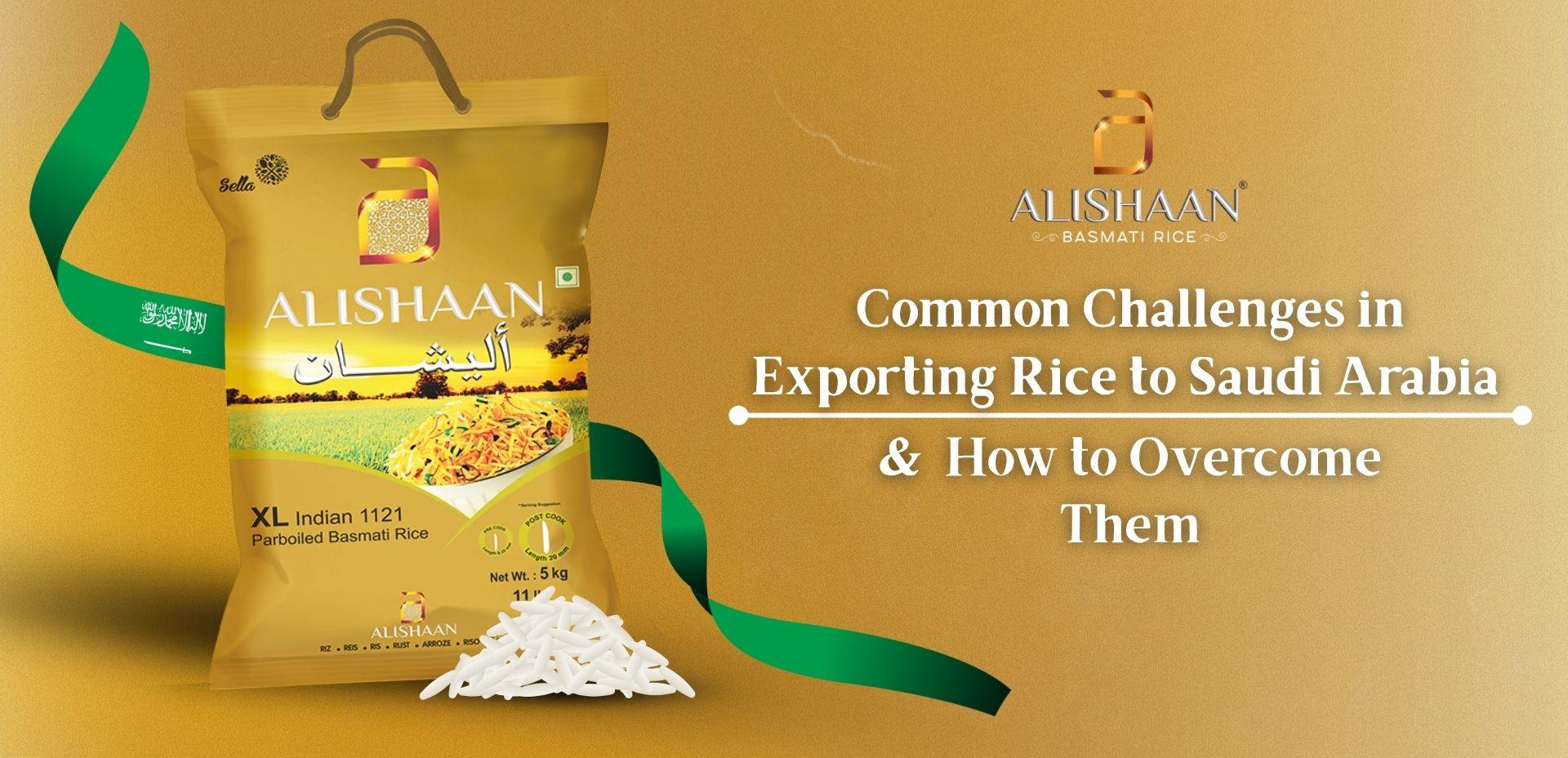
Common Challenges in Exporting Rice to Saudi Arabia (and How to Overcome Them)
Saudi Arabia’s love for rice dishes like kabsa, mandi, and biryani makes it one of the world’s largest importers of Indian rice. For exporters, this is both an opportunity and a challenge. The market demands high standards, competitive pricing, and reliable logistics. At Alishaan, we specialize in delivering premium biryani rice from India to Saudi tables—combining compliance, consistency, and the authentic taste that consumers expect.
1. Meeting Stringent Certification Standards
Saudi authorities enforce some of the toughest checks on food imports. Every shipment requires phytosanitary certificates from India’s NPPO, compliance with SASO (Saudi Standards, Metrology, and Quality Organization), and in some cases, additional testing by the SFDA. Even small discrepancies in documents can delay clearance.
Alishaan’s approach: We work only with accredited inspection agencies, and every document is meticulously verified before dispatch. By sharing paperwork with importers in advance, we prevent costly delays and keep consignments moving smoothly.
2. Labeling and Packaging Compliance
Incorrect labeling is one of the most common reasons for rejection at Saudi ports. Packaging must clearly display Arabic and English information—nutritional facts, shelf life, storage instructions, and country of origin.
Alishaan’s approach: Our packaging is designed to meet Saudi standards while highlighting quality and authenticity. For importers sourcing our basmati rice, we provide packaging that ensures compliance and makes it easy to move products quickly into retail and institutional supply chains.
3. Competing in a Crowded Market
Saudi Arabia imports rice from India, Pakistan, and Thailand, making the market highly competitive. Many exporters try to compete on price alone, which reduces profitability.
Alishaan’s approach: We focus on differentiation, not discounting. By emphasizing the unique aroma, grain length, and cooking consistency of our long grain basmati rice, we prove value beyond cost. Trial consignments and detailed spec sheets help importers experience the difference firsthand, building loyalty with their customers.
4. Managing Logistics and Port Delays
Ports such as Jeddah Islamic and King Abdulaziz often face congestion, leading to delays, inspections, and added storage charges.
Alishaan’s approach: We partner with freight forwarders who specialize in Saudi shipments and maintain precision in documentation—from packing lists to invoices and certificates. Reliable scheduling of long grain basmati rice consignments reinforces our dependability and assures importers of timely delivery.
5. Adapting to Regulatory Changes
Saudi authorities frequently update food safety and import policies. Sudden changes in labeling or duty structures can disrupt shipments if exporters are unprepared.
Alishaan’s approach: We stay ahead by closely monitoring APEDA updates in India and SFDA guidelines in Saudi Arabia. Regular communication with our import partners ensures early awareness of regulatory shifts, giving us the agility to adapt quickly.
6. Building Trust and Long-Term Partnerships
In Saudi Arabia, relationships are as important as product quality. Importers value reliability, transparency, and consistent performance.
Alishaan’s approach: Trust is central to everything we do. We provide real-time shipment updates and resolve issues swiftly. For bulk buyers, our reliability ensures smooth operations and strengthens long-term partnerships.
7. Planning for Demand and Seasonality
Rice demand in Saudi Arabia spikes during Ramadan, Eid, and festive occasions. Exporters who fail to plan risk missing these critical opportunities.
Alishaan’s approach: We collaborate with importers to forecast seasonal demand and offer flexible shipment sizes. For customers seeking biryani rice, this ensures stock is available during peak consumption, creating goodwill with both trade partners and end consumers.
Conclusion
Exporting to Saudi Arabia is rewarding but requires discipline, foresight, and strong relationships. At Alishaan, we combine market knowledge with strict compliance, efficient logistics, and a commitment to quality. Our portfolio of premium long grain basmati rice facilitates ready-to-sell products designed for distributors to place directly in offline stores and online channels, our goal is simple: to deliver grains that reflect the heritage of India while building lasting partnerships in the Kingdom.

No Comments